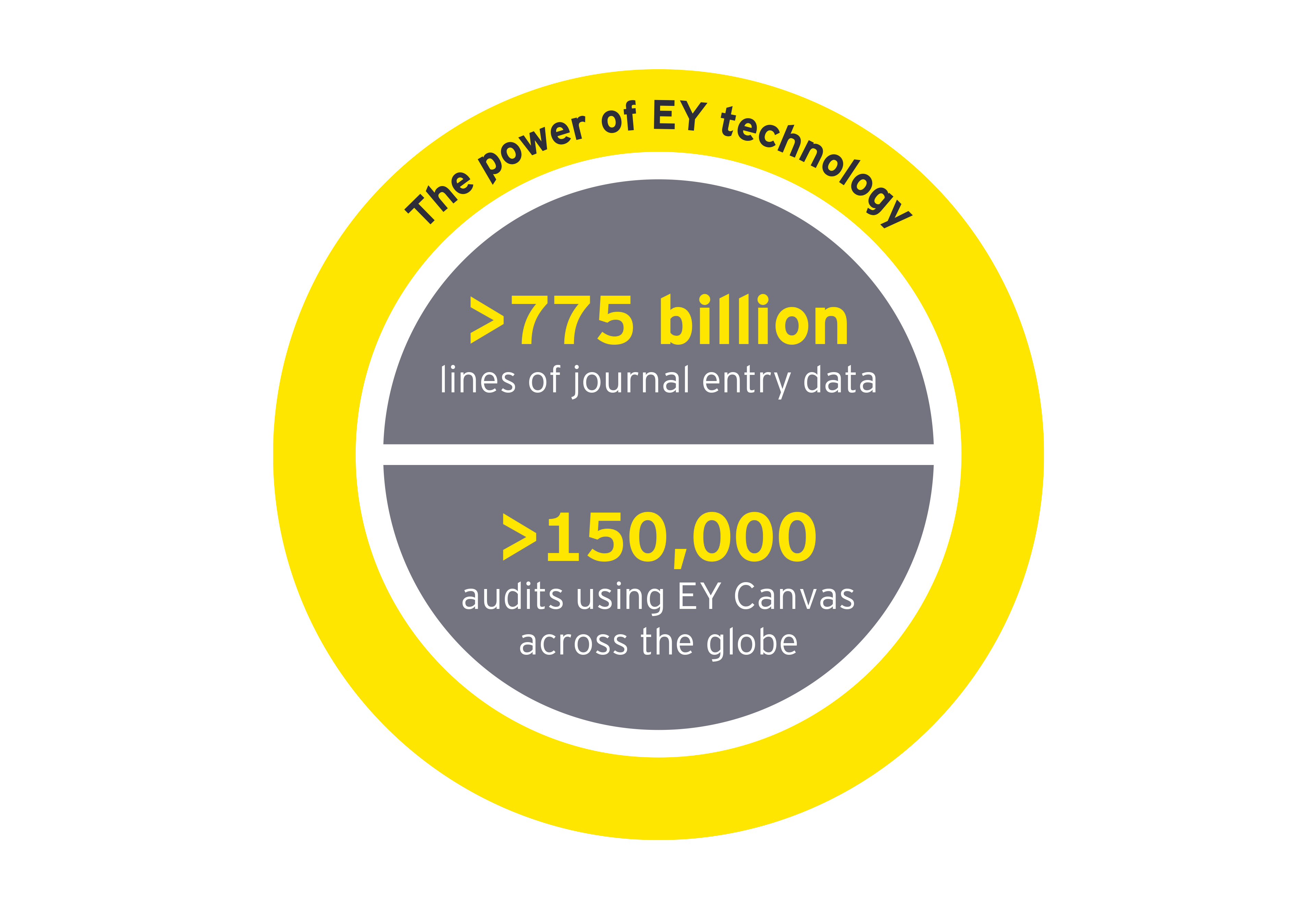
Chapter 1
Quality is non-negotiable
Expectations for independence, integrity and objectivity
The global EY organization is committed to serving the public interest through high-quality audits that are executed with independence, integrity and objectivity, and which involve professional skepticism, compliance with professional standards and due professional care. EY leaders thoroughly evaluate audit inspection results to identify areas where quality can be improved.
More than 150 audit regulators conduct inspections of audit engagements across EY member firms. Together with internal inspections, external inspections provide valuable insights into the quality of EY audits.
Many geographies continue to experience strong external inspection results. However, following an increase in inspection findings experienced by certain member firms, there was an increase in International Forum of Independent Audit Regulators (IFIAR) deficiency rates. The global EY IFIAR survey rate, which represents the number of engagements with at least one significant finding divided by the number of engagements inspected, rose to 28% in 2023 from 20% in 2022. In the same timeframe, the global EY all IFIAR public interest entity (PIE) deficiency rate decreased from 26% to 23% and the global EY all-in deficiency rate decreased from 18% to 13%.
In particular, the increase in the global EY IFIAR deficiency rate for 2023 is a result of a few, albeit material, jurisdictions.
International Forum of Independent Audit Regulators (IFIAR) and other non-IFIAR regulators deficiency rates
| 2022 | 2023 | Trend | |
| Global EY IFIAR survey deficiency rate | 20% | 28% | Deterioration |
| Global EY all IFIAR PIE deficiency rate | 26% | 23% | Improvement |
| Global EY all-in deficiency rate | 18% | 13% | Improvement |
The multi-year Assurance transformation strategy outlined in the next section is focused on clarifying and standardizing the audit approach, building centralized teams to provide audit support on various topics and reinforcing a continuous improvement mindset among EY people.
New international standards
In 2023, the implementation of the International Standard on Quality Management 1 (ISQM 1) was finalized. As part of this implementation, all EY member firms performed the first annual evaluation of their System of Quality Management in 2023.
The implementation of ISQM 1 contributed to the creation of a more structured and robust System of Quality Management — notably with a clear identification of roles and responsibilities on quality.
During the first year, areas were identified where improvements should be made, which included resource management and standardization across all EY member firms in the execution of controls.

Chapter 2
Reinforcing quality and consistency
How engagement teams are supported in the execution of high-quality audits
As part of the commitment to continuous improvement, the extensive technology platform of the global EY organization is being leveraged to drive proficiency in audit execution.
In addition, EY member firm-based initiatives target workforce deployment and workload management, enhanced training and coaching for specific areas of audit findings, business operations and portfolio management. Real-time understanding of how initiatives are being received and implemented by engagement teams informs whether course corrections or additional enablement and guidance should be implemented.
Analyzing the root causes that underlie positive or negative inspection outcomes further supports a focus on behaviors that drive high-quality results.
Infrastructure to drive quality
The global EY organization has infrastructure in place to support engagement teams and practice leaders in the execution of high-quality audits.
The infrastructure includes Assurance leaders around the world who play an instrumental role in communicating change, guiding engagement teams and answering their technical questions, being alert to signs of execution or client risk and positively intervening when necessary, and driving operational enhancements. In practice, this means making sure engagement teams have the right resources at the right time and enough resources with enough time.
A focus on audit quality is supported through metrics or audit quality indicators (AQIs) that span across themes related to execution, talent, remediation and enablement, and adherence to pacing milestones, which set completion dates for important phases of the audit and avoid time compression. Platforms such as EY Canvas Client Portal also support audit quality by, for example, allowing EY teams to send clients requests for required documents or for work to be performed by internal audit.
Audit quality is further driven by globally directed in-flight coaching, principally in areas where there have been more pervasive inspection findings or that have been impacted by new or revised auditing standards, and also by enablement that assists teams in utilizing new technology as designed.


Chapter 3
Helping empower quality audits
Building on the strengths of EY people and technology
Executing a high-quality audit is complex. It involves assessing emerging risks, working with data and emerging technologies, exercising judgment and performing responsive audit procedures — often within strict timelines. Audit teams therefore need specific tools and skills to be successful, as well as working environments in which they are supported in facing these challenges.
Engagement performance: the role of technology
The global EY organization is investing more than US$1b in next-generation Assurance technology. This investment is building on the strength of the existing leading-edge audit technology suite — integrating advanced technologies under one seamless platform while driving transformation.
Technology not only guides teams confidently through the workflow, but also enhances their experience by embedding data analysis and AI in the audit process. It drives audit quality by standardizing processes and helps leverage data to provide risk guidance and relevant recommendations to EY teams. Technology also provides tools that help gather better audit evidence by, for example, selecting transactions for testing that are identified as anomalies, outliers or unexpected.
More specifically, the evolving Assurance technology harnesses next-generation data-access capabilities and advanced analytics, supporting data-driven auditing that is embedded into methodology. In 2023, during the first year of the four-year investment program, more than 20 major Assurance technology capabilities were released. They have been deployed across the global EY organization and include globally scaled AI. These AI-enabled capabilities are directly integrated with EY Canvas to support EY Assurance professionals in assessing risk.

The power of EY technology helps EY teams analyze more than 775 billion lines of journal entry data each year. More than 150,000 audits are using EY Canvas across the globe.
Attracting and developing EY people
The global EY organization is committed to attracting talented people and investing in the next generation of leaders — giving everyone opportunities to grow and develop and supporting them to be intentional about their careers.
At the same time, EY people are encouraged to gain future-focused skills including AI, blockchain, robotic process automation, innovation and cybersecurity, as well as other capabilities that are in high demand, such as sustainability. In total, during the calendar year 2023, EY audit professionals undertook nearly 9 million hours of learning, averaging approximately 85 hours each.
~9m
hours of learning were completed by EY audit professionals in 2023.
Maximizing the power of all differences
The global EY organization has a long-standing commitment to diversity, equity and inclusiveness (DE&I). This commitment to building high-performing, diverse, equitable and inclusive teams brings together multiple perspectives that drive professional skepticism and critical thinking.
Career paths for a changing workforce
With more people with diverse skills, backgrounds and experience entering the organization, EY member firms are implementing more flexible career paths for all professionals. This recognizes that individuals have different career goals and provides the necessary tools and processes to help them personally manage their progression.
Offering an agile and flexible career path that includes acceleration for the highest performers is vital in attracting new, diverse talent and helping to develop and retain audit professionals.

Chapter 4
Additional support on a global scale
Behaviors and global networks that maintain a commitment to audit quality
Tone at the top
The appropriate tone is set by leadership and encourages a commitment to quality, a dedication to continuous improvement, a focus on EY values, a global mindset and teaming. It is reinforced by leaders within Areas, Regions and countries and emphasizes serving the public interest on audit engagements.
Commitment to independence and accountability
Everyone — from the most senior global leaders to the most junior members of audit teams — is expected to demonstrate accountability for and commitment to executing high-quality audits.
The accountability framework is a set of global quality control policies and practices that reinforces this expectation. These policies and practices set the process and governance for proving input, helping establish an individual’s quality and effective risk management rating based on the achievement of quality objectives including the level of inspection findings and independence violations.
At the same time, the EY Global Independence Policy requires the global EY organization and EY people to comply with the independence standards applicable to specific engagements, as well as applicable local independence standards.
The EY Global Audit Quality Report outlines how independence and the global applications are considered and evaluated, as well as tools and processes that support compliance with independence policies.
Helping manage risk on a global scale
Risk Management coordinates organization-wide activities designed to help EY people meet global and local compliance responsibilities and support client-facing teams in providing quality and exceptional client service.
More specifically, to support audit quality, audit risks are identified and responded to when and where they arise. A proactive approach to exercising appropriate, consistent responses is also maintained throughout the network.
To identify, assess and respond to emerging risks that may adversely impact audit execution, specific infrastructure and processes are in place. Macroeconomic and geopolitical trends are monitored, their impact on audits is evaluated, and guidance and enablement are issued when necessary.
When it comes to fraud risk, there are new opportunities to leverage data to identify and respond to the risk of fraudulent financial reporting. Auditors increasingly use data analytics to identify unusual transactions and their patterns that could indicate a heightened risk of fraud. Through the Risk Center of Excellence, tools and processes are being developed that help teams respond to the elevated risk of fraud.
The networks and frameworks outlined above help support and maintain the commitment to audit quality.
Summary
The global EY organization is resolute in its commitment to progressing audit quality, which helps give stakeholders the confidence to make important decisions. This commitment to quality, which is demonstrated by the actions of EY global leadership sets the tone for how EY teams perform audit work while driving audit quality.


